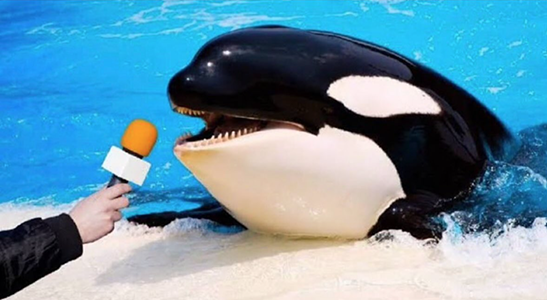— Orcasional Musings by Steve Henigson —

Note that I’ll be using the Politically Incorrect word, “Indian.” It’s the word that was in common usage when the events in this story took place, and, anyway, we don’t know which tribe was involved, so you’re going to have to bear with “Indian,” and with me.
Richard Willis homesteaded on Orcas Island back in 1896. Homesteading gave you “free” land, as long as nobody else had claimed it, and you did a certain amount of work on it. You staked out a plot, improved it with a home and maybe a barn, grew a crop on it, and registered it with the government. Registration was the hard part, because you had to pay $60 to do it. In today’s money, that works out to about $2,000 which is still a considerable sum.
Richard’s son, Cecil Willis, was elected to earn the registration money. He got it by tending two small navigation lights, one at each end of Obstruction Island. Those lights helped you to decide which pass you wanted to take: Obstruction Pass on the north, or Peavine Pass to the south. Once a week, rain or shine, Cecil had to row out to the two ends of Obstruction Island, pour kerosene into the lights’ tanks, and trim their wicks. After his first year on the job, and 52 trips, Cecil had earned that $60.
One evening, Cecil had finished tending to the lights and was rowing back home when he noticed a large plume of dark smoke on the eastern horizon. Back then, a large plume of dark smoke was a sure indication of a wood-burning steamboat that was travelling fast. Boats travelling fast were unusual, because speed quickly used up wood, after which somebody would have to be paid to fell, cut, and split a cord or two of replacement fuel. Cecil rested on his oars, and waited to see what the hurry was.
After a while, here came a large Indian war canoe propelled by perhaps 20 men, all of them paddling as hard as they could. The big canoe was zipping right along, and close behind it, its paddlewheels churning the water and smoke pouring from its funnel, came the local Revenue Service cutter. The Revenue Service was the nearest thing to a police force back then on Puget Sound, and this cutter was chasing what probably had been an Indian raiding party from the Queen Charlottes, perhaps trying to steal cattle from coastal farms on Whidbey Island.
It was a close thing, but the Revenue Service cutter was losing the race. The cutter’s captain was standing on his bridge, shaking his fists at the Indians, turning the air blue with his curses, and doing a little dance of angry frustration. But nothing that the captain or his crew could do would make the cutter go any faster, and the Indians were getting away.
And then something strange happened. The Indians steered their canoe to the right, into the East Sound. Then as now, the East Sound was a dead end. Cecil could see the cutter’s captain relax, smile, and rub his hands together in satisfaction. “We’ve got ’em now, boys,” he seemed to be saying. The cutter also turned right, and slowed down some, and Cecil rowed along behind, interested in finding out the end of the story.
The Indians, however, didn’t slow down. They kept paddling as fast as they could until they reached the tiny village of Eastsound, centered on the narrow isthmus which connects the two large land masses that make up the rest of Orcas Island. When the speeding canoe reached the little village, its momentum drove it high up onto the beach. The Indians sprang out on both sides, grabbed the canoe by its gunwales, lifted it up, and began running. They ran their canoe right through the little village and across the narrow isthmus. At what is now North Beach, on the northern shore, they threw it back into the water, jumped into it, and paddled away homeward, but at a slower, more sedate pace.
At the moment that the Indians had lifted their canoe out of the water, the Revenue Service captain realized that he had been bamboozled. Here he was at the northern, dead end of the East Sound, and he would have to steam his cutter all the way around Orcas Island in order to continue the chase. But by the time he’d done that, the Indians would be long gone, across the border into Canada, and uncatchable. Cecil could see the captain’s shoulders fall in defeat, as he stood there on the cutter’s bridge. Night was falling, so Cecil turned his own boat around, and rowed himself home.
This story comes to us from Mark O’Neill, Cecil’s great-grandnephew. It was verified, and enhanced, by Mark’s mother, Irene Barfoot O’Neill. Irene has lots of interesting Orcasian stories to tell, and, sooner or later, you’ll read some of them here.








Thank you for sharing these historic Orcas stories. I look forward to reading more of them.
In 1907 my grandfather, Major Harry Patton, Managing Editor of the Bellingham Daily newspaper, then called the Reville, bought our property from the homesteader, Robert Patenoster.
It is one mile north, on the water, from the little hamlet of Doe Bay.
Irene O’Neill, the gracious lady, lived nearby in Olga. One of her many endeavors was operating a very interesting ‘used everything’ rural shop on her property. Well-made clothing, used farm tools, old milk cans,women’s vintage hand-made dresses, cross-cut saws, everything!
After the War, commencing 1946 through the 1950’s and on, I spent many a happy hour down in her spread,perusing her collection and selecting, for me, many ‘had to have’, vintage items.
It was during those many encounters that she related to me many of the ales and events which occurred in our area. A wonderful woman.
My dad told me of the raiders and how the natives were outsmarters.
Great history from Uncle Harry! A group of folks are trying to preserve, protect—and bring these stories into the future—by saving the Olga Store and saving the Olga Post Office. Check out http://www.theOlgaStore.org